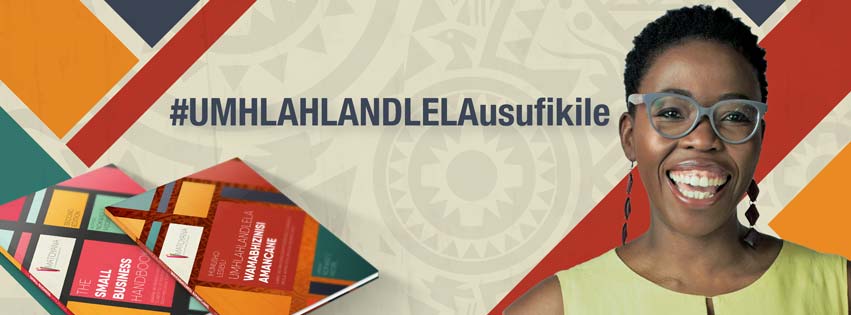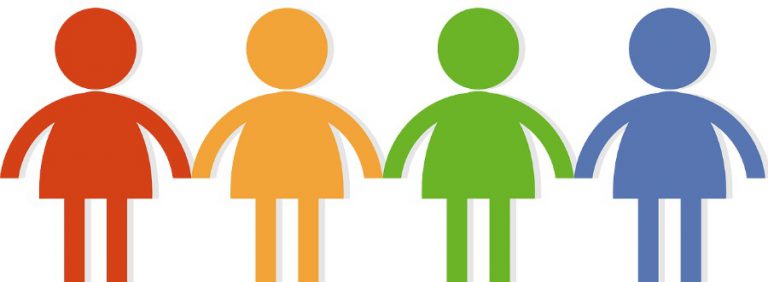Nokwazi Mzobe: Writer of Her Own Success Story
This interview first appeared in Top Business Women Magazine / Standard Bank Top Women Leaders.
Written by Elske Joubert
Nokwazi Mzobe searched far and wide for a one-stop shop where she could find the resources and advice she needed to start her own business. After a number of futile searches, she decided to create her own. The New Small Business Handbook offers guidance and advice to aspirant entrepreneurs. The book covers 17 critical areas of running a sustainable business such as finance, branding, human resources, customer services, leadership and so much more. In collaboration with Procter & Gamble and other industry experts, Nokwazi’s aim is to help small businesses drive sustainable growth.
Q: You clearly have a passion for the advancement of entrepreneurship in SA – evident from your pro bono coaching and mentoring of women entrepreneurs. Where did your journey start?
A: I sort of stumbled across my entrepreneurial journey. I had just come back from doing my MBA in the US and China. I focused on entrepreneurship innovation, but was on sabbatical from my company. When I came back to South Africa, I just wasn’t sure if I wanted to go back to working for that specific company. So whilst I was still waiting for the right position, I started volunteering for an entrepreneurship programme that was empowering women – it’s called the Goldman Sachs 10 000 women. I came in as a mentor and volunteer. I was getting positive feedback from some of the entrepreneurs. A lot of them would ask me ‘why don’t you charge for your sevices? I would pay for them”. After that it slowly developed into a consultancy where I did provide coaching and mentoring, but also included other services like consulting to corporates.
Q: What prompted you to write The Small Business Handbook?
When I decided that I was going to go ahead full steam with this business, I used to go to a lot of roadshows and chat to a lot of people. However, it was all quite frustrating, especially because I didn’t really have an office or anything – so I would work from Wits and work from coffee shops. I realised that I needed a single place where I could find all the necessary information and get certain answers, without having to move around. I also found that I made mistakes that could have been avoided. So that was the one part that prompted me to start with this project. The other part was when I started lecturing, some of the entrepreneurs came to me afterwards and they would ask me where I got my information from, because they couldn’t find any. I think it was a combination of my experience and other people.
Your trajectory is quite impressive. Ranging from your various degrees to working with multinational companies across the globe. How do you manage your time?
I’ve always seen my day as 24 hours long – which means that’s the timeframe in which I have to accomplish what I need to do. Even when I was in the corporate space, I’d come to work early and leave late – I even used to work on the weekends. That’s probably not healthy, but I’ve never regretted it. To me it’s more about being able to achieve my goals. Even now as an entrepreneur I see the week as a ‘work week’. What I do try to do though, is to not neglect my downtime. So if I don’t have pressing work, I switch off.
What, in your opinion, can be done to help reduce the unemployment rate and to help empower people – women, especially?
This question is quite a tough one because I think it’s more of a long-term process. To answer the first question: it all comes down to the school system. The school system teaches us to be workers and employees. And I think change fundamentally needs to come from there – for example, including courses in the curriculum that are about creativity, entrepreneurship, and problem solving. South Africa is probably the most prosperous country on the African continent, but when I’ve travelled across the continent, what I found was that people in other countries – with an even higher unemployement rate – were always busy doing something to make money. I think ultimately South Africa’s culture needs to change in terms of ‘we go to school to become workers’. Secondly, I think the programmes that we have at the moment should be structured around ‘how can we help people to start looking for opportunities in the problems they see around them?’ If you look at some of the innovations coming through – especially in the US – it’s people solving problems.
So how can we get the South African youth or people who are unemployed and sitting at home to say to themselves, ‘Shucks, I’m sitting here doing nothing, what could I be doing, what issue is in my community that I could potentially help solve?’ and then find a way to monetise that. With regards to women empowerment. I’ve designed a programme where I work with early childhood development schools and crèche owners. What’s really interesting is that a lot of these women started these schools not because they wanted to be crèche owners, but they realised that in their communities there weren’t a lot of these crèches around. Many of these women were making a loss, or at best breaking even, because they didn’t have the necessary business skills. I think it’s also about practical skills: understanding the environment, understanding the actual micro-entrepreneurial environment and business and helping to develop solutions that will make them sustainable.
In starting your own business, what would you say were the three biggest struggles you faced and how did you overcome them?
I think at the beginning I under-valued my services by underpricing and also not allowing myself to negotiate a suitable price. How I overcame that was by sitting down and realising that the way I ran my business was not sustainable. I had to choose – do I want to run an NGO or do I want to run a business? It had to be a mental shift. My other struggle was probably the fact that I tried to be a jack of all trades. If you’re trying to be everything to yourself and to your business, that doesn’t make you very productive. For a long time I told myself, ‘why would you pay somebody if you know how to do this?’ and I think that just made me move slower. I had to learn to start outsourcing and paying others and trusting them to execute something. Thirdly, becoming an entrepreneur means your life changes. And you’ll find that on your journey, insecurities will start to pop up. I overcame those insecurities by hiring a life coach. I realised I couldn’t do this alone – that I needed someone to help me make that mental shift. I used to say to myself coming from corporate, ‘I can always go back’, but that just meant that I wasn’t fully invested in this entrepreneurial journey – and that had to change. A shift had to be made.
Do you think women face unique and different challenges when going out on their own?
I think we need to firstly acknowledge that we live in a patriarchal and sexist society. There are certain questions that women will be asked that men will not be asked. I remember somebody once telling me, “you look too young to be standing in front of us” and this was as I was about to start the class. I received feedback like I needed to power dress so that people could take me more seriously, but some of my male colleagues would be wearing jeans and loafers. So small things like that offer quite a big challenge to women. I’ve coached women who are starting businesses in male-dominated industries that are telling stories of just how sexist it is and how difficult it is for them to be respected as women entrepreneurs. As women we’re taught to be accommodating, we’re taught to not be rebellious, we’re taught not to ask questions, we’re taught not to be bossy. And I think we bring that with us to our businesses. The men on the other hand are unapologetic.
 Our slogan for this year is ‘Women in power: good for a company, great for the economy’. What would you say are some of the main qualities women bring to the table when injected into a company and the overall economy?
Our slogan for this year is ‘Women in power: good for a company, great for the economy’. What would you say are some of the main qualities women bring to the table when injected into a company and the overall economy?
I think the societal upbringing I spoke about also gives us value. I would say women are inclusive. Yes, there are some people who are all about the money, but there are also those who are running inclusive businesses. There’s a culture of sharing, of caring – not just for themselves, but also for their employees and the wider environment. I think women bring emotional intelligence into a company. When I look at all the social entrepreneurs out there – there are a lot of women who are social entrepreneurs – that’s good for the economy – they’re not the ones saying ‘I want to have the highest profit margin, dominating everything’ – they’re actually looking at not just empowering themselves, but also empowering others.







